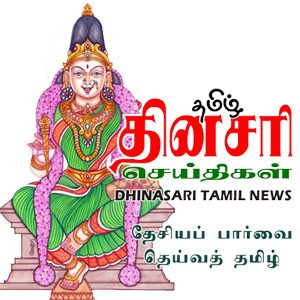
By Narasimhan Vijayaraghavan
On 2nd Aug, 2023 a constitution bench of the Supreme Court of India comprising the five senior most judges viz. Chief Justice D Y Chandrachud, Justice Sanjay Kishan Kaul, Justice Sanjiv Khanna, Justice Suryakant and Justice B R Gavai, will begin hearing a host of writ petitions challenging the abrogation of Art.370 from the Consutition by the Narendra Modi government. It is a historical moment looking into a historicity of a hugely political event and fact. A mouth watering feast/debate, discourse and a monumental decision is awaited.
The abrogation of Article 370 of the Indian Constitution in 2019 was a major political event that has been the subject of much legal debate. The article granted special status to the state of Jammu and Kashmir, including the right to have its own constitution and flag., but as a ‘transitory’ provision. The Modi government argued that Article 370 was no longer necessary and that its abrogation would help to integrate the state more fully into the Indian Union.
The legal debate over the abrogation of Article 370 has focused largely on two main issues viz. (i) The validity of the presidential order: The government issued a presidential order on August 5, 2019, that effectively abrogated Article 370. Critics of the government have argued that the presidential order was invalid because it was not issued under the provisions of Article 370(3). Article 370(3) states that the President can amend or repeal the article only on the recommendation of the Jammu and Kashmir Constituent Assembly. However, the J&K Constituent Assembly was dissolved in 1957.
And (ii) The constitutionality of the Jammu and Kashmir Reorganisation Act, 2019: The government also passed the Jammu and Kashmir Reorganisation Act, 2019, which divided the state of Jammu and Kashmir into two union territories. Critics of the government have argued that the act is unconstitutional because it violates the basic structure of the Indian Constitution. The basic structure doctrine is a set of fundamental principles that are considered to be essential to the Indian Constitution.
The court is expected to issue a ruling on these petitions in the coming months. And with Justice Kaul timed to retire on Christmas Day in Dec,2023, the verdict will be out well in time before the general elections, possibly in May,2024.
A near umbilical adjunct would be the heatring on Art.35A as well. Article 35A of the Indian Constitution was introduced in 1954 by the then President of India, Dr. Rajendra Prasad, through the Constitution Order, 1954. The order was issued under Article 370, which grants special status to the state of Jammu and Kashmir.
Article 35A gave the Jammu and Kashmir legislature the power to define who is a “permanent resident” of the state. This definition has been used to restrict the rights of non-permanent residents in a number of ways, including: Preventing them from buying property in the state; Denying them government jobs; Barring them from voting in local elections
The introduction of Article 35A was controversial from the start. Critics argued that it violated the fundamental rights guaranteed by the Indian Constitution, such as the right to equality and the right to property. They also argued that it discriminated against women, as it allowed a woman who married a non-permanent resident to lose her permanent residency status, but not vice versa.
Despite the controversy, Article 35A remained in place for over 60 years. However, in August 2019, the Indian government repealed the article through a presidential order. This decision was made on the grounds that Article 35A was no longer necessary to protect the special status of Jammu and Kashmir.
The repeal of Article 35A has been welcomed by some, who argue that it will help to integrate the state more fully into the Indian Union. However, others have criticized the decision, arguing that it will undermine the special status of Jammu and Kashmir and lead to further instability in the region.
The mode and manner in which Article 35A was introduced in the Indian Constitution is a complex and controversial issue. There are strong arguments on both sides of the debate. Ultimately, the decision of whether or not to repeal the article was a political one, and it is likely to continue to be debated for many years to come.
the people of the state were willing to accept the special status that Article 35A granted them and their consent was built into it. It is important to remember that the Indian Constitution is a living document. It is possible that the circumstances that led to the introduction of Article 35A have changed, and that the article is no longer necessary. This is a matter that will need to be debated by the Indian people and their elected representatives.
The core issue that would demand attention and decision would be whether Modi government was in constitutional space when they did what they did while J&K was under Presidential Rule viz. Governor at the helm and not an elected chief minister and his cabinet. The primary focus would be on whether it was ‘back door entry’ as central government was in control, for all practical purposes, in the centre and the State, and whether Governor reflected the ‘will of the people’ as consent and constitution of J&K had to yield to the new.
Without getting too nuanced or engage in constitutional legalese, to a common man, Governor woukd be seen to be as much a constitutional head as a chief minister. The inanimate law saw no difference and sees no difference on the Governor’s status to accord ‘consent’. Governor could constitutionally represent the State. Was it moral or ethical? Did it reflect the spirit of the precept and practice of ‘Will of the people? Fabulous questions that seek answers.
The CB has made it clear. It will be focused in law and constitution. Not swayed by history or emotions or consequences or status before avd after.Would you take a bet on which way the verdict may go? Or must go? Or shall go?
It is a hazardous minefield to step into. No matter what, we as Bharathiyas can feel proud that ultimately as in Ramjanmabhoomi issue, on Art.370 too Rule of Law shall prevail as the final arbiter of our Constitution will get to have the last word to look forward to by us viz. We the People.
(Author of Constitution and its Making/Working- OakBridge is practicing advocate in the Madras High Court)




